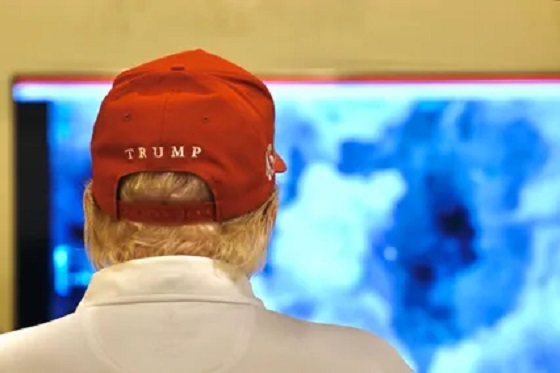conflict
Europe’s Heads of State Have Learned Nothing from 170 years of history
By John Leake
With the exception of Viktor Orban, Europe’s so-called leaders have a learning disability of miraculous proportions.
While the Congress of Vienna (1815) seemed to inaugurate a new era of hope for peace in Europe, Europe’s leaders couldn’t resist the siren song of bloodyminded pigheadedness that drew them into the Crimean War (1853-1856) in which Britain and France thought it more sensible to side with the Ottoman Turks than with Russia over various religious and territorial disputes in the Black Sea that are now too tedious to recount.
The only redemptive feature of the Crimean War—at least on the British side—is that members of the ruling class that wanted the war were willing to serve on the front line of it. Lieutenant-General James Thomas Brudenell, 7th Earl of Cardigan, was notorious for his aristocratic haughtiness and extravagance. He also achieved legendary status for leading the Charge of the Light Brigade during the Battle of Balaclava, immortalized in Tennyson’s poem.
Watching Cardigan charge directly into a Russian battery, the French commander, Pierre Bosquet remarked: “C’est magnifique, mais ce n’est pas la guerre: c’est de la folie (“It is magnificent, but it is not war: it is madness.”).
After the British and French backed the Ottomans against the Russians in the Crimean War, they backed the Russians against the Germans, Austrians, and Ottomans during the Great War of 1914-1918. When it came to drafting the Treaty of Versailles, the Allies were more interested in ascribing blame to the Germans than in making a lasting peace. This led to World War II, when British and the French backed the Russians once again against the Germans and the Austrians—this time with the Turks joining their side.
After World War II, the Americans thought it more important to create a lasting peace than to punish Germany again, so they chose the Marshall Plan instead of the punitive Morganthau Plan.
At the war’s conclusion, erstwhile allies U.S. and Russia, became mortal enemies in a Cold War in which they threatened each other with nuclear annihilation. At the conclusion of the Cold War, Washington decided to revert to the spirit of the Treaty of Versailles to kick Russia while it was down and to maintain a state of enmity with it instead of taking pains to incorporate it into the West.
In its great sagacity, the Trump administration has recognized that there is nothing to be gained for the American people by continuing the U.S. proxy war against Russia in Ukraine. Trump and his people recognize the reality that it would be far better to have a mutually respectful and beneficial relationship with Russia than to continue threatening it and maintaining a state of enmity with it.
Trump starkly contrasts with Europe’s so-called leaders, who wish to keep the Great Game pissing contest with Russia going. Like 15-year-old female rivals on a high school cheerleading squad, they find it more important to ascribe blame in the West’s longstanding conflict with Russia than to find a peaceful solution to it. All the phony expressions of solicitude for the people of Ukraine are pure humbug. Europe’s so-called leaders are perfectly happy to continue sending young Ukrainian men to their deaths and they will work hard to undermine Trump’s efforts to end the killing.
I would wager a large sum that not a single European head of state with the exception of Viktor Orban could—without referring to an Encyclopedia—provide an account of the various disputes, touchy matters of honor, and attributions of blame that were the casus belli of the Crimean War, the Franco-Prussian War, the First World War, or the Second World War. They are ignorant, childish brats who have learned nothing from European history.
I never thought I would say that President Trump must have the patience of a saint to suffer Europe’s irritating parcel of whiny, mercenary, and malevolent wimps.
Subscribe to FOCAL POINTS (Courageous Discourse).
For the full experience, upgrade your subscription.
conflict
Zelensky Alleges Chinese Nationals Fighting for Russia, Calls for Global Response

 Sam Cooper
Sam Cooper
Ukrainian President Volodymyr Zelensky announced Tuesday that his forces have captured two Chinese citizens fighting as part of the Russian army in eastern Ukraine, alleging “there are many more Chinese citizens in the occupier’s units.” The stunning revelation could inject a volatile new dimension into ceasefire negotiations between the United States and Russia—and intensify already fraught tensions over Taiwan.
Zelensky shared the news in an X post, accompanied by video of one of the captured men—an Asian male in beige fatigues, hands bound with zip ties, visibly distressed as he gestures to a Ukrainian camera operator. The video shows the man making whirring sounds, crouching instinctively as if a drone is circling above and opening fire—then glancing up and uttering the English word, “commander.”
“We have information suggesting that there are many more Chinese citizens in the occupier’s units than just these two,” Zelensky wrote on X. “We are currently verifying all the facts—intelligence, the Security Service of Ukraine, and the relevant units of the Armed Forces are working on it.”
The president said he has instructed Ukraine’s foreign minister to urgently contact Beijing to clarify how China intends to respond.
“Russia’s involvement of China, along with other countries, whether directly or indirectly, in this war in Europe is a clear signal that Putin intends to do anything but end the war,” Zelensky wrote. “He is looking for ways to continue fighting. This definitely requires a response. A response from the United States, Europe, and all those around the world who want peace.”
Zelensky added that Ukrainian authorities had recovered documents, bank cards, and personal data from the two prisoners—material that could be pivotal in discovering the nature of China’s involvement.
If verified, the presence of Chinese nationals fighting for Russia could carry sweeping geopolitical implications. It would complicate delicate U.S.-Russia negotiations aimed at exploring a conditional ceasefire, and could have indirect ramifications on the plans of Washington, Tokyo, and Taipei in their growing confrontation with Beijing.
China has repeatedly denied providing direct military support to Russia. Zelensky’s statement marks the first time Ukraine has publicly alleged that Chinese nationals are embedded in Russian combat units—an allegation that, if substantiated, could alter the strategic calculus in both Eastern Europe and the Indo-Pacific.
Responding to Zelensky’s claims, Tom Shugart, a senior defense analyst at the Center for a New American Security and a former U.S. Navy officer, emphasized that the strategic implications hinge on whether the Chinese nationals were acting as mercenaries or state-directed personnel. “If the PRC is actively providing soldiers to fight in Ukraine, that would be altogether different—a possible sign of a real Axis that may best be resisted wherever it is fighting,” he wrote on X.
This is a developing story. The Bureau will continue to report as further details emerge.

Recommend The Bureau to your readers
conflict
“HELL WILL RAIN DOWN”: Trump unleashes U.S. military on Yemeni Houthis

 MxM News
MxM News
Quick Hit:
President Trump ordered a massive military assault on Iranian-backed Houthi forces in Yemen on Saturday, vowing to unleash “overwhelming lethal force” after months of attacks on American and allied vessels in the Red Sea.
Key Details:
-
Trump announced the strikes in a Truth Social post, stating, “Today, I have ordered the United States Military to launch decisive and powerful Military action against the Houthi terrorists in Yemen.”
-
He criticized former President Joe Biden for failing to contain the Houthis, saying his response was “pathetically weak” and emboldened the group’s ongoing attacks on commercial and military vessels.
-
The U.S. Navy’s USS Harry S. Truman carrier strike group, along with three destroyers and a cruiser, launched the assault, targeting radars, air defenses, and missile systems used to disrupt shipping lanes.
CENTCOM Forces Launch Large Scale Operation Against Iran-Backed Houthis in Yemen
On March 15, U.S. Central Command initiated a series of operations consisting of precision strikes against Iran-backed Houthi targets across Yemen to defend American interests, deter enemies, and… pic.twitter.com/u5yx8WneoG
— U.S. Central Command (@CENTCOM) March 15, 2025
Diving Deeper:
President Trump escalated U.S. military action against Iran-backed Houthi rebels on Saturday, ordering airstrikes on targets in Yemen in response to the group’s repeated attacks on Red Sea shipping. Trump, in a Truth Social post, declared that the U.S. military would not tolerate continued aggression and vowed an overwhelming response.
“The Houthi attack on American vessels will not be tolerated,” Trump wrote. “We will use overwhelming lethal force until we have achieved our objective.” He directly warned the Houthis, stating, “YOUR TIME IS UP, AND YOUR ATTACKS MUST STOP, STARTING TODAY. IF THEY DON’T, HELL WILL RAIN DOWN UPON YOU LIKE NOTHING YOU HAVE EVER SEEN BEFORE!”
The strikes, carried out by U.S. Central Command, targeted missile sites, drone launch facilities, and command centers used by the Houthis to strike commercial and military vessels in the Red Sea. U.S. warships and carrier-based fighter jets participated in the mission, marking a significant escalation in efforts to protect international shipping routes.
Trump also issued a direct warning to Iran, demanding that its support for the Houthis “must end immediately.” Addressing Tehran, Trump wrote, “Do NOT threaten the American People, their President…or Worldwide shipping lanes. If you do, BEWARE, because America will hold you fully accountable and we won’t be nice about it!”
The strikes come after more than a year of escalating attacks by the Houthis, who have targeted over 100 merchant vessels, sunk at least two, and killed multiple sailors since the Israel-Hamas war began. Trump pointed to Biden’s failures in handling the crisis, noting that “it has been over a year since a U.S.-flagged commercial ship safely sailed through the Suez Canal, the Red Sea, or the Gulf of Aden.”
With Trump’s order, the U.S. is making clear that hostile actions in the Red Sea will not go unanswered. As military operations continue, all eyes will be on whether the Houthis and their Iranian backers heed the warning—or face even greater firepower from the U.S. military.
-

 Also Interesting2 days ago
Also Interesting2 days agoMortgage Mayhem: How Rising Interest Rates Are Squeezing Alberta Homeowners
-

 2025 Federal Election2 days ago
2025 Federal Election2 days agoConservative Party urges investigation into Carney plan to spend $1 billion on heat pumps
-

 Also Interesting2 days ago
Also Interesting2 days agoExploring Wildrobin Technological Advancements in Live Dealer Games
-

 2025 Federal Election2 days ago
2025 Federal Election2 days agoCommunist China helped boost Mark Carney’s image on social media, election watchdog reports
-

 2025 Federal Election2 days ago
2025 Federal Election2 days agoFifty Shades of Mark Carney
-

 2025 Federal Election2 days ago
2025 Federal Election2 days agoCorporate Media Isn’t Reporting on Foreign Interference—It’s Covering for It
-

 Business1 day ago
Business1 day agoStocks soar after Trump suspends tariffs
-

 Justice2 days ago
Justice2 days agoCanadian government sued for forcing women to share spaces with ‘transgender’ male prisoners







